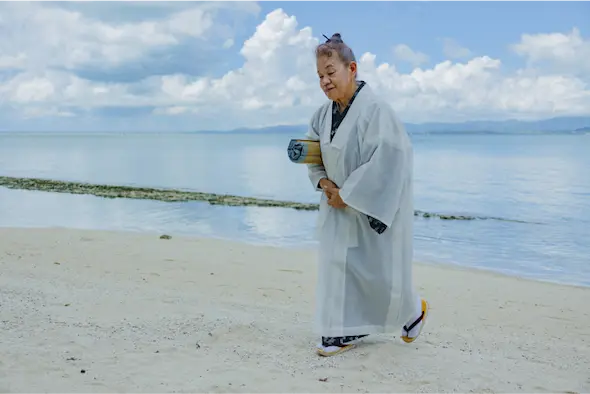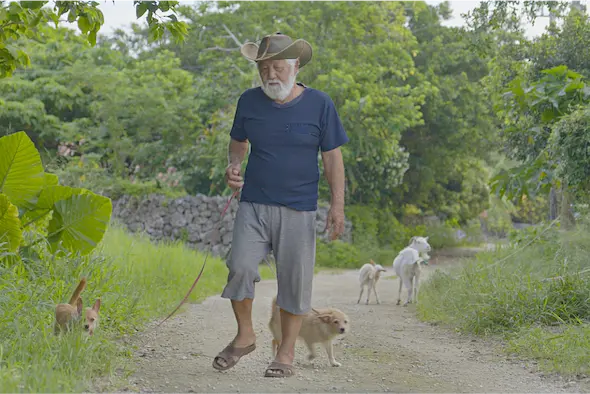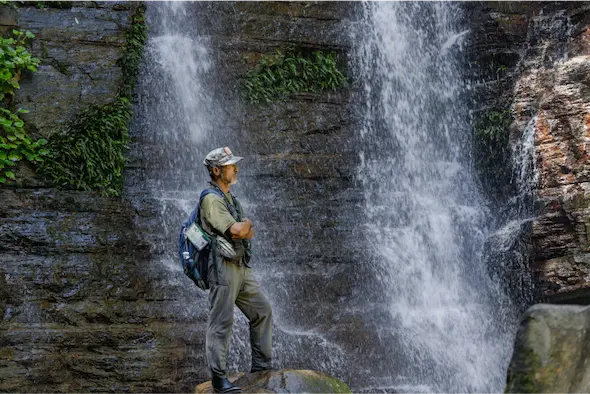I feel fortunate to have been born and raised on Kohama. I too wanted to raise my children here, in an environment where everyone supports each other.
Mr. Daiku, who cultivates sugarcane and island vegetables on Kohama, is a young leader in the agricultural industry. We talked to him about life on the island, where he juggles his main job as a farmer, his role as a youth association member responsible for traditional events, and his duties as a father to three children, keeping him busy daily.
When I lived away the island, I would remember and feel lonely when the festival season came around.
I was born and raised on Kohama. I left the island to attend high school and university. However, I missed being back home during the times of traditional events such as Hounen Festival and Bon (Buddhist event) because I had watched and participated since I was very young. And even though I enjoyed my university years in Nagoya, I never hestitated to return to the island after graduating. Since then, my father's sugarcane farm has been passed down to me, and we now run the farm together.
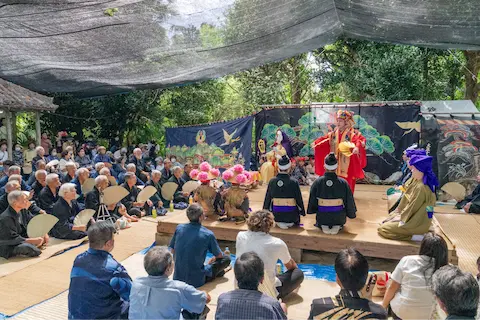
A sense of elation at events brings everyone together.
There are three significant events on Kohama Island—the Hounen Festival, the Kitsugan Festival and Bon. We do not work during this time, and you could even say that our year revolves around them. These festivals and events are an integral part of our lives. We start to prepare about a week in advance, learning to play the flute, drums, dances and memorizing our parts in performances in dialect. I happen to be good at drumming, but it's all thanks to the kind and supportive instruction from my elders.
In addition, there are detailed rules about the costumes we wear at the festivals. Kimonos are traditionally handmade in each household, starting with spinning the thread, dyeing, weaving and tailoring. As the festival approaches, there is a heightened sense of elation from everyone in the village.
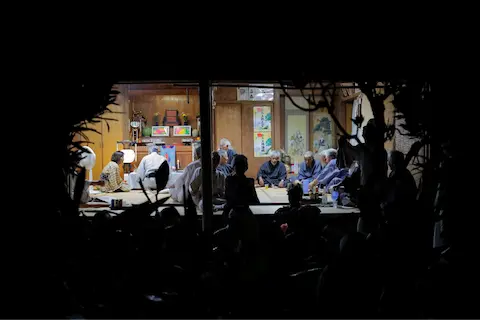
I aim for agricultural practices based on local production and consumption. This could attract like-minded young people to live on the island.
While sugarcane cultivation is our primary focus, due to the recent tourism boom, orders for island vegetables have been increasing from nearby resort hotels and restaurants. Currently, we mainly produce island shallots and green papayas. Still, we aim for agricultural self-sufficiency on the island.
If I can make a living from farming here, I think I could inspire other people my age to return to the island. I am conscious that our generation is the key to preserving the events and dialect that will be passed on to the next generation.
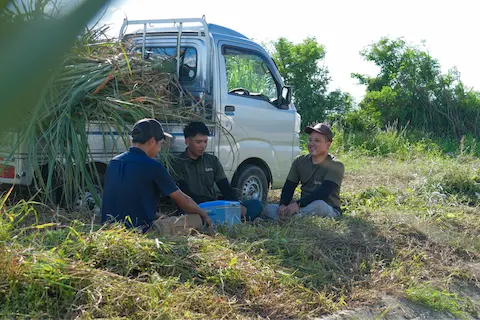
I want to pass on this wonderful environment to raise children to the future generations.
I'm blessed with my wife and three children, and we're right in the middle of parenthood. When I lived away from the island, I realized how fortunate I was to have been born and raised in Kohama. That's why I've always wanted to raise my children here someday. Parents are not alone here, as our children are being raised by many guardians: not just my family and relatives, but also the members of the community. I hope to preserve this culture, environment, and sense of community that is integral to the life on Kohama for our children and future generations. My friends and I always talk about these things whenever we get together over drinks.
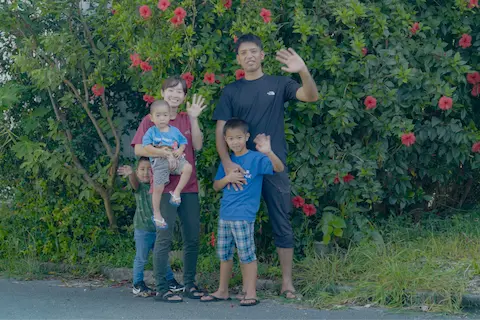
またん わーりたぽーんなーなー👋
"Matanwāritapōnnānā👋"
Please come again! in Kohamajima dialect.
What is most precious to you?
What is most precious to the islanders?
